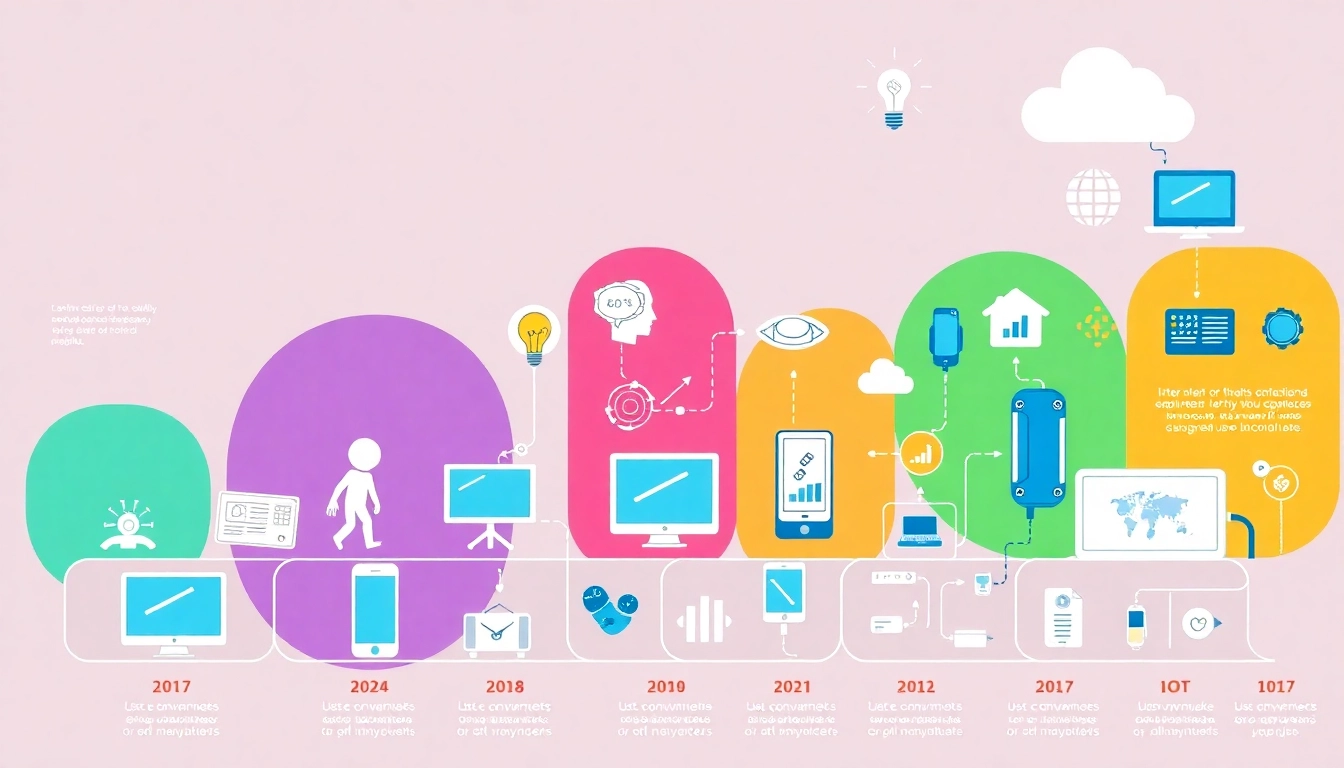In today’s rapidly evolving world, technology is the driving force behind innovation, economic growth, and societal change. From the smartphones in our pockets to complex AI systems shaping industries, understanding what technology truly is—and how it continues to transform our lives—is essential. Whether you’re a tech enthusiast, a professional, or simply curious about the digital age, this comprehensive guide will explore the depths of technology, its main types, impacts, and future trends to keep you informed and prepared for the innovations ahead.
What Is Technology? Definition, Importance, and Overview
Definition of Technology
Technology refers to the application of scientific knowledge and techniques to solve problems, improve processes, and create new tools or systems. It encompasses a broad range of innovations, from simple tools used thousands of years ago to complex digital platforms that connect billions today. Essentially, technology is the practical use of scientific discoveries to meet human needs and enhance our capabilities.
Historical Evolution of Technology
Throughout history, technology has evolved through distinct eras. The Stone Age marked the first use of basic tools, followed by the Agricultural Revolution, which introduced farming technologies. The Industrial Revolution brought mechanization, transforming manufacturing and transportation. In the 20th century, the advent of computers and digital electronics ushered in the Information Age, fundamentally changing how we communicate, work, and live. Today, emerging technologies like AI and IoT continue this trajectory, making the evolution more rapid and impactful than ever before.
Why Technology Matters Today
Modern society relies heavily on technology for economic development, healthcare, education, and entertainment. It drives digital transformation across industries, enabling businesses to operate more efficiently and innovate faster. Moreover, technology helps address global challenges like climate change, resource scarcity, and public health crises. As technology advances, understanding its role is crucial for making informed decisions and leveraging its full potential responsibly.
Types of Technology: An In-Depth Breakdown
Information and Communication Technologies (ICT)
ICT includes all digital tools and platforms used to transmit, store, and process information. This includes the internet, mobile devices, cloud computing, and social media. ICT has revolutionized communication, making it instant and accessible worldwide. It underpins remote work, online education, and digital commerce, shaping how societies interact and economies grow.
Industrial and Manufacturing Technologies
This category covers automation, robotics, 3D printing, and advanced machinery. These technologies enhance production efficiency, precision, and safety. For example, smart factories utilize IoT sensors and AI to optimize manufacturing processes, reducing waste and energy consumption.
Emerging Technologies (AI, Blockchain, IoT)
Emerging technologies are the frontier of innovation. Artificial Intelligence (AI) develops systems that can learn and adapt, impacting sectors like healthcare, finance, and customer service. Blockchain provides secure, transparent digital transactions, transforming finance and supply chains. The Internet of Things (IoT) connects everyday objects to the internet, enabling smarter homes, cities, and industries.
How Technology Drives Innovation and Society
Impact on Business and Economy
Technology accelerates innovation, creating new markets and transforming existing industries. Digital transformation enables companies to operate more efficiently, reach global audiences, and develop innovative products. For instance, e-commerce giants like Amazon leverage AI and data analytics to personalize shopping experiences and optimize logistics, boosting economic growth.
Transforming Healthcare, Education, and Daily Life
In healthcare, telemedicine, AI diagnostics, and wearable devices improve patient outcomes and accessibility. Education benefits from online platforms and virtual classrooms, expanding learning opportunities worldwide. Daily life is increasingly integrated with smart devices—smartphones, home assistants, and connected appliances—making routines more convenient and efficient.
Ethical Considerations and Challenges
As technology advances, ethical issues such as data privacy, cybersecurity, and AI bias become critical. Ensuring responsible innovation involves addressing these challenges through regulations, transparency, and public awareness. Balancing technological progress with societal values is essential for sustainable growth.
Future of Technology: Trends and Predictions
Artificial Intelligence and Machine Learning
AI and machine learning will continue to evolve, powering autonomous systems, predictive analytics, and personalized experiences. In 2024, expect more sophisticated AI applications in healthcare, finance, and customer service, making processes smarter and more efficient.
Quantum Computing and Cybersecurity
Quantum computing promises unprecedented processing power, revolutionizing cryptography and complex problem-solving. As these systems develop, cybersecurity will also advance to protect data against new threats, ensuring safe digital environments.
Sustainable and Green Technologies
Addressing climate change, green technologies like renewable energy, energy-efficient data centers, and smart grids will gain prominence. Innovations in battery storage and carbon capture are vital for a sustainable future.
Frequently Asked Questions About Technology
1. What are the latest trends in technology?
Key trends include AI advancements, IoT expansion, 5G deployment, quantum computing progress, and sustainable tech innovations. These trends are shaping the landscape of 2024 and beyond.
2. How does technology impact daily life?
Technology influences daily routines through smartphones, smart homes, online banking, and social media. It enhances convenience, connectivity, and access to information, making life more efficient.
3. What skills are needed for a tech career?
Essential skills include programming, data analysis, cybersecurity, problem-solving, adaptability, and knowledge of emerging technologies like AI and IoT. Continuous learning is vital in the fast-changing tech landscape.
4. How do emerging technologies influence society?
They create new opportunities, improve healthcare, and boost economic growth. However, they also pose challenges like privacy concerns and job displacement, requiring thoughtful regulation and ethical considerations.
5. What are the risks associated with new tech advances?
Risks include data breaches, misuse of AI, digital divide, and environmental impacts. Proactive measures and responsible innovation are crucial to mitigate these dangers.
Conclusion: Embracing the Future of Technology
Technology is the backbone of modern society, continuously evolving through innovation and emerging trends. Staying informed about these developments enables individuals and organizations to harness technology’s full potential responsibly. Whether you’re looking to build a career in tech, invest in emerging industries, or simply understand the digital world better, embracing ongoing learning is key. For more insights, explore our latest updates and expert analyses at TechDee. The future belongs to those who adapt and innovate—so gear up for the next wave of technological transformation!




